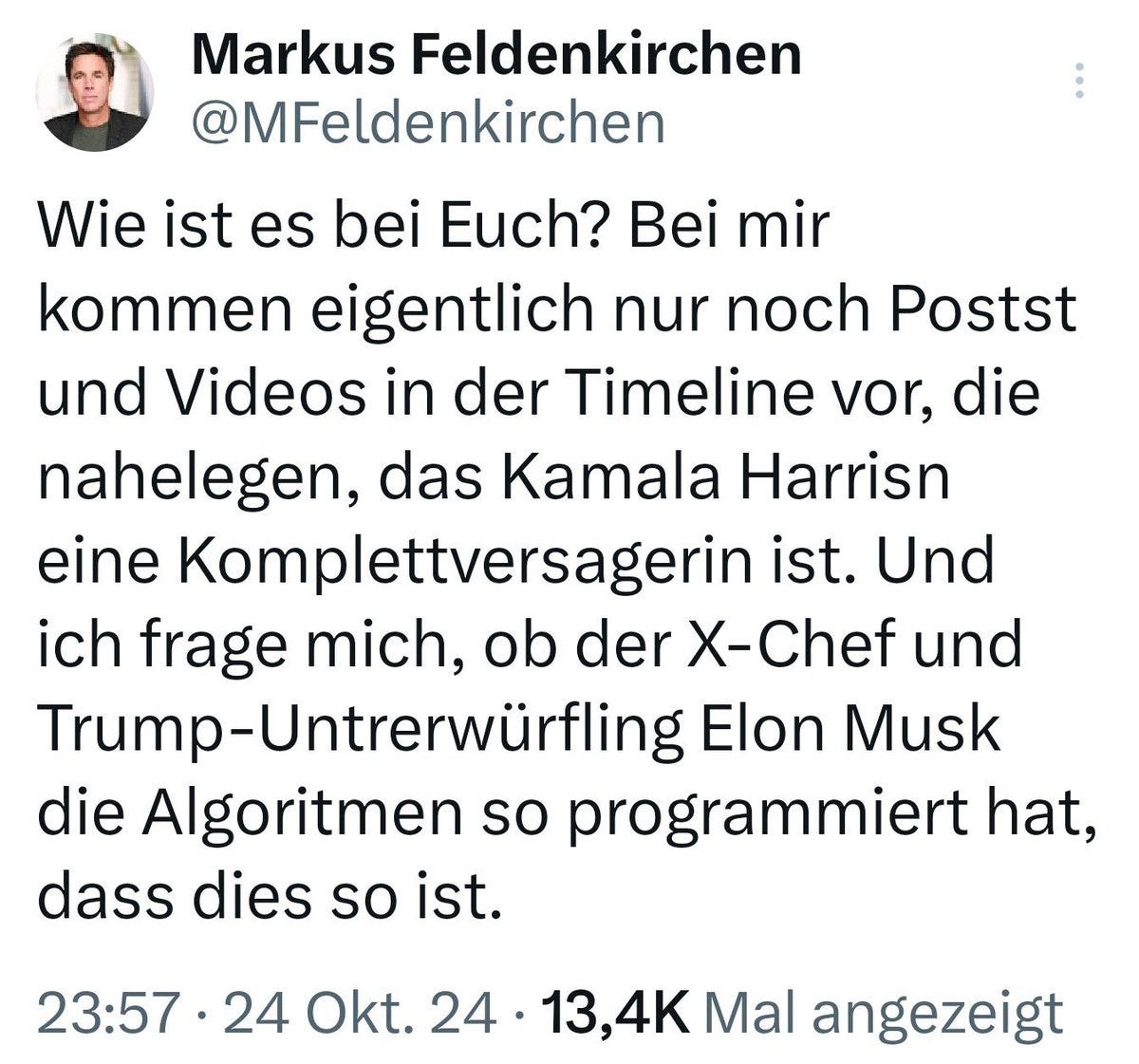German Vice-Chancellor Robert Habeck calls for a comprehensive internet censorship programme to stop people disagreeing with him
Ten days ago, the German Vice-Chancellor Robert Habeck appeared at a meeting of the German Council on Foreign Relations, where he spoke on “competitiveness, climate protection and polarisation.” There, he spent a lot of time explaining that Europe really needs to do something about the fact that people can say whatever they want on the internet:
I won’t make a secret of the fact that I believe this unregulated form of social media is no longer acceptable. In my opinion, we must be more vigilant and consistent in ensuring that, firstly, the algorithms are made transparent; and, secondly, that they are also regulated in such a way that the space for democracy – well, the ‘social’ in social media, which of course also has strengths – is not eliminated. We cannot, as liberal democracies, allow billionaires who support Donald Trump in the US to define discourse in Europe with their idea of communication, or with Chinese technology – which is itself banned or regulated in China. That would be truly blind. That is why polarisation is not just a buzzword about the state of society, but in my view it is a political mandate to look closely at how polarisation arises. And if – and this is the second point about polarisation that we need to talk about – if it is deliberately used to destabilise society, and at least we have to admit the thought in this day and age, then we have every reason to resist it politically and to continue this defensive democracy across social media as well. There are plenty of ways to do that, maybe we don’t yet have enough, but a strict application of the DSA, the Digital Services Act, is the least we need in Germany.
That is a long quote, and at points a little bit subtle, so I will unpack it for you: Habeck, who is one of the most prominent and powerful politicians in the Federal Republic right now, believes that “social media” is “unregulated” and that the state must intervene to make internet platforms and their algorithms a safer space for “democracy.” Specifically, European countries cannot allow platforms controlled by Trump supporters like Elon Musk to “define discourse in Europe.” We need to be more like China and strictly regulate internet expression. Above all, we must investigate whether “polarisation” is being deployed by nebulous powers “to destabilise society.” By this, Habeck means that he wants to figure out whether it is Vladimir Putin or Elon Musk or somebody else who is causing millions of Germans to have opinions that differ from his. Germany must “resist” these differing opinions “politically,” via current censorship mechanisms such as the Digital Services Act, and via other means if the DSA proves insufficient.
As the German constitutional scholar Josef Franz Lindner has pointed out, Habeck’s remarks break new ground in openly demanding “a state censorship system.” In this way, Habeck joins a chorus of voices implying or even promising that the relevant provisions of the DSA (which are primarily directed against illegal internet content) may be applied as widely as possible against all manner of opinions that our elites don’t like. If Habeck can just shut up enough people, perhaps he can do away with this dreadful “polarisation” and restore consensus for all of the wonderful Green things he wants to inflict on the Federal Republic.
I’m particularly interested in Habeck’s paranoia about non-transparent social media “algorithms.” This is a growing fixation of the European establishment, and one that really speaks volumes. You can read whole articles on how “algorithms steer our thoughts,” on how “social media algorithms manipulate young men” and how algorithms have fractured reality and submerged all of us in hermetic informational bubbles that not even fact-checking can surmount. A few days ago, an apparently intoxicated Markus Feldenkirchen (he writes for Der Spiegel) asked whether there was an evil plot afoot by Musk to skew the algorithms and fill his X feed with “postst [sic] and videos that suggest that Kamala Harrisn [sic] is a complete failure.”
Of course nobody would deny that social media platforms are good at feeding you content you want to consume, but this discourse has just become totally deranged. You want to ask these people if they can see the algorithms, if the algorithms are in the room with them right now, what the algorithms look like and whether they have fangs.
One of the most important developments of the past generation, is the growing cultural and social separation of our elites from their respective national populations. The people who rule us now identify with a broad, globalist class; they develop their preferences and fine-tune their politics within this lofty society and in growing isolation from the needs and desires of ordinary people. Whenever elites encounter the opinions of ordinary people on Twitter or YouTube, they find the experience not only unpleasant but also deeply disorienting. Doesn’t everybody agree that we need to decarbonise to save the planet? Isn’t it a matter of general consensus that Kamala Harris should be the next president of the United States? It must be the Evil Right-Wing Algorithms that are screwing everything up and confusing the citizenry. These algorithms have weaponised free expression against democracy, and only the censors can now save us from the frightening spectre of totalitarianism.


